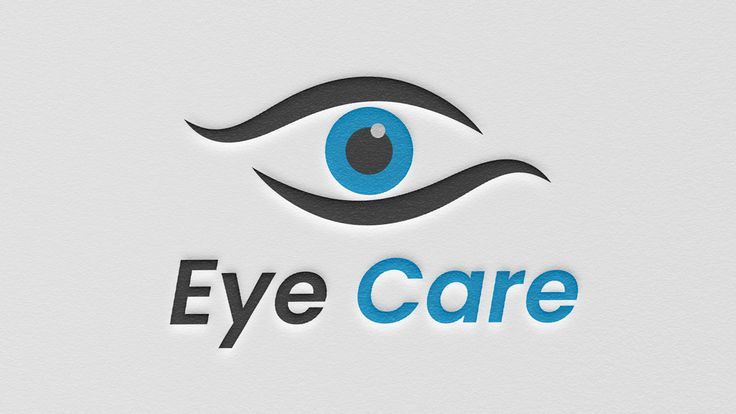Retinal Laser in zaheerabad
Home/Services/Retinal Laser
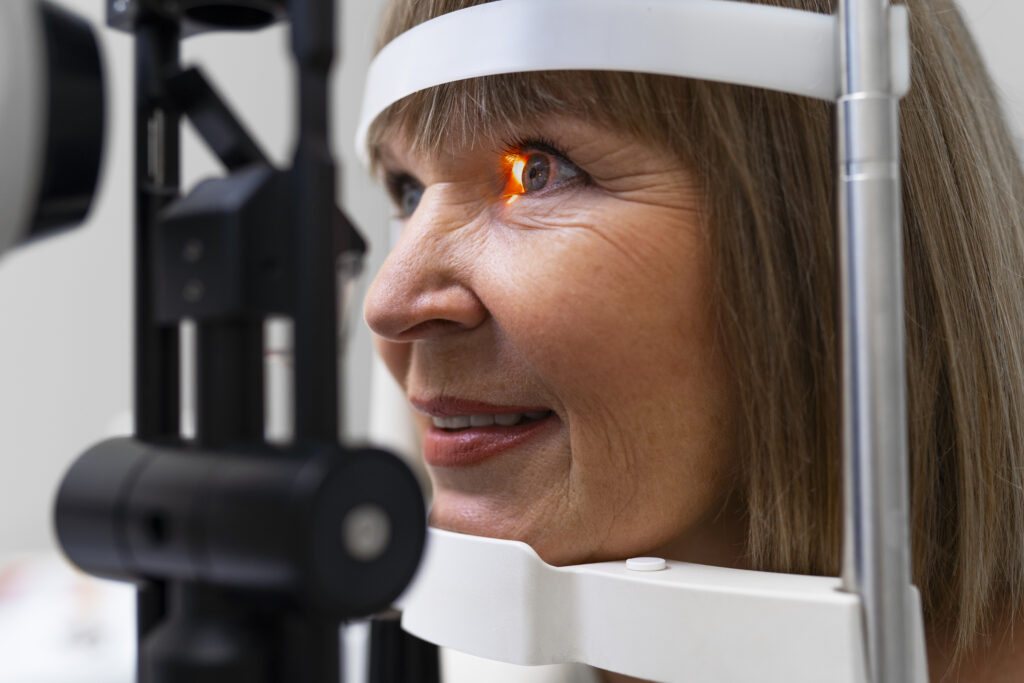
what is Retinal Laser?
Understanding About Cataract
At eye care optical& clinic we use retinal laser photocoagulation to treat various retina-related conditions like diabetic retinopathy and retinal vein occlusion. Despite what some might think, it’s not considered a surgery. Instead, our specialist employs a laser beam to precisely target and apply heat to specific areas of the retina, causing coagulation to address the issue.
Symptoms of retinal laser
- Temporary Visual Disturbances: Blurred vision or visual distortions may occur as the eye adjusts post-treatment.
- Discomfort or Mild Pain: Some patients report mild discomfort or a sensation of grittiness in the treated eye.
- Flashes of Light: You might see flashes of light or floaters, which are usually temporary and should decrease over time.
- Redness: The white part of the eye might appear red or bloodshot following the procedure.
- Sensitivity to Light: Increased sensitivity to bright lights or sunlight can occur for a short period.
When to consider retinal laser tretreatment
Incomplete Treatment Response: Sometimes, the initial laser treatment may not fully address the retinal issue. In such cases, additional treatment might be required to achieve the desired outcome.
Progression of the Condition: If the underlying condition, such as diabetic retinopathy or retinal vein occlusion, progresses or leads to new complications, a retreatment might be necessary to manage the progression and prevent further damage.
New Retinal Abnormalities: The development of new areas of retinal damage or abnormal blood vessel growth might require additional laser treatment.
Follow-Up Evaluation: During routine follow-up visits, your specialist might identify areas that need further treatment to improve or stabilize your retinal condition.
When to consider retinal laser treatment ?
Discuss if surgery is the best course of action for you with your eye doctor. When your quality of life starts to suffer due to cataracts, the majority of eye physicians advise you to think about having cataract surgery. This could involve your capacity to carry out regular tasks like reading or nighttime driving.
Because cataracts often don’t damage the eyes, most people don’t feel the need to have them removed right away. However, some people may see a rapid worsening of cataracts. Diabetes, hypertension, and obesity are a few of these.
Different Types of retinal laser treatment
Focal Laser Photocoagulation:
- Purpose: Targets specific areas of the retina where there are abnormal blood vessels or leakage, often used for diabetic retinopathy.
- Method: A laser beam is focused on the precise area to seal leaking blood vessels or reduce swelling.
Scatter Laser Photocoagulation (Panretinal Photocoagulation, PRP):
- Purpose: Treats widespread retinal damage, often used for advanced diabetic retinopathy or retinal vein occlusion.
- Method: Multiple laser spots are applied across the retina to create a pattern of burns, reducing the growth of abnormal blood vessels and preventing further retinal damage.
Grid Laser Photocoagulation
- Purpose: Used to treat diffuse retinal edema, such as in cases of macular edema.
- Method: A grid-like pattern of laser burns is applied to the retina to reduce swelling and leakage from blood vessels.
Laser Photocoagulation for Retinal Tears or Detachments
- Purpose: Used to seal retinal tears or prevent retinal detachment.
- Method: The laser creates a barrier of scar tissue around the tear, helping to reattach the retina to the underlying tissue.
Laser Treatment for Retinal Vascular Conditions:
- Purpose: Addresses issues like retinal vein occlusion or retinal artery occlusion.
- Method: The laser targets abnormal blood vessels or areas of poor blood flow to reduce leakage or improve circulation.
FAQs
How long does retinal laser treatment takes ?
The duration of retinal laser treatment can vary depending on the specific type of treatment and the complexity of the case. Generally:
Focal Laser Photocoagulation: This usually takes about 10 to 30 minutes. The treatment involves targeting specific areas of the retina, so the time can vary based on the number and location of the spots being treated.
Scatter Laser Photocoagulation (Panretinal Photocoagulation, PRP): This procedure may take about 30 to 60 minutes. PRP involves applying multiple laser spots over a larger area of the retina, so it tends to take longer compared to focal laser treatment.
Grid Laser Photocoagulation: Typically lasts around 20 to 45 minutes. The grid pattern requires careful application over areas of swelling or leakage.
Laser Treatment for Retinal Tears or Detachments: This can range from 15 to 45 minutes, depending on the extent of the retinal damage and the precision needed for sealing the tear or detachment.
Can I live a normal life after retinal treatments
Yes, many people can live a normal and active life after retinal treatments, but it depends on several factors, including the underlying condition being treated, the type of treatment, and individual healing. Here’s a general overview of what you might expect:
Is retinal treatment painful?
Retinal laser treatment is generally not painful, though some discomfort might be experienced. Here’s what you can expect:
During the Procedure:
- Minimal Pain: Most patients report minimal pain during the treatment. The procedure is typically done under local anesthesia, which numbs the eye to prevent pain.
- Discomfort: You might feel a sensation of warmth or mild discomfort when the laser is applied. Some people describe it as a tingling or a sensation similar to being poked with a small, warm needle.
After the Procedure:
- Mild Discomfort: It’s common to experience some mild discomfort, a gritty feeling, or temporary sensitivity in the treated eye afterward. This usually resolves within a few days.
- Redness and Irritation: The white part of the eye might appear red or bloodshot, which is usually harmless and fades over time.
Our Services
Book An Appointment
Why Choose Eyecare Optical and Clinic ?
- Experienced Doctors
- Cutting-edge Technology
- 1000+ Trusted Patients
- 10+ Years Services
- 10,000+ Surgeries
- 100% Accurate Results
- Quick Recovery
- Your Vision Is Our Focus
- Treatments
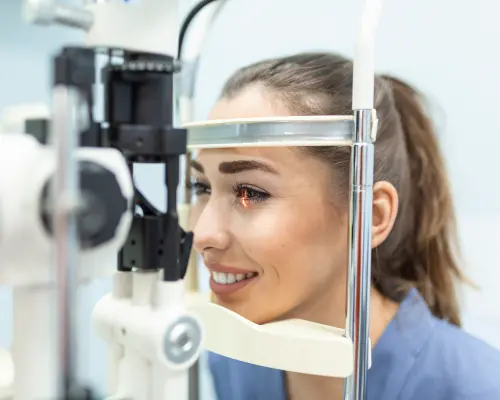
Customised LASIK
Personalized LASIK is a type of vision correction surgery that is more accurate and specific than normal LASIK since it is customized to the specific flaws in each patient's eye.
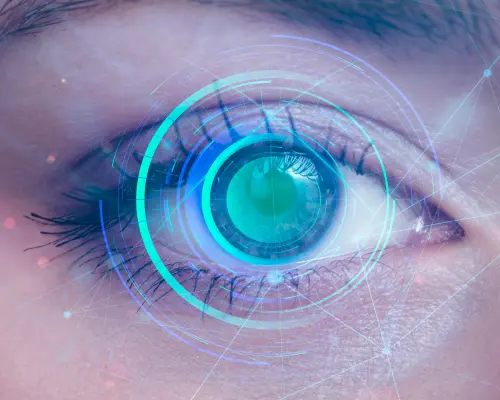
Retina Services
Retinal services include specialist medical care for the diagnosis, treatment, and management of disorders and diseases that impact the retina.
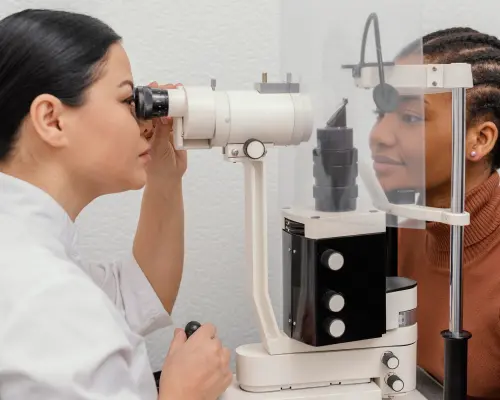
Corneal Services
The clear front surface of the eye, the cornea, is affected by a variety of diseases and ailments, which Corneal Services specializes in identifying, treating, and managing.
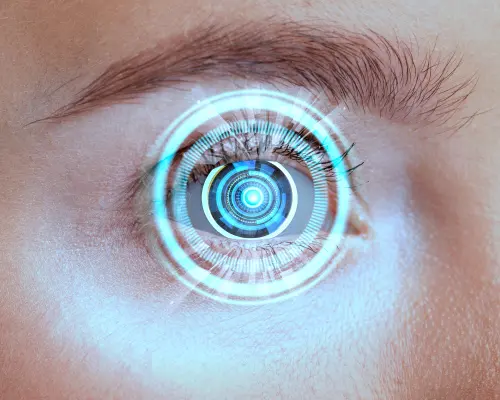
Anti-VEGF Agents
Anti-VEGF therapies are drugs that prevent aberrant blood vessel formation and leakage by blocking vascular endothelial growth factor (VEGF).
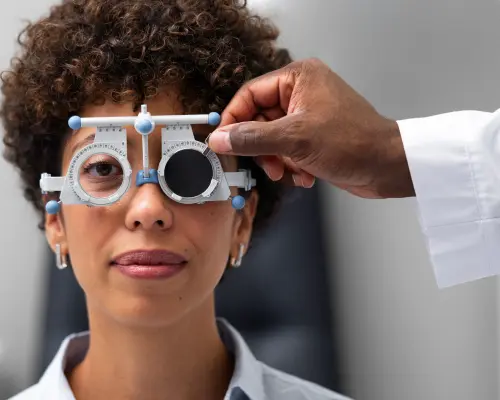
Epi-LASIK
A form of refractive surgery called epi-LASIK uses a laser to separate and reshape the corneal epithelium in order to treat visual issues like astigmatism, hyperopia, & myopia.
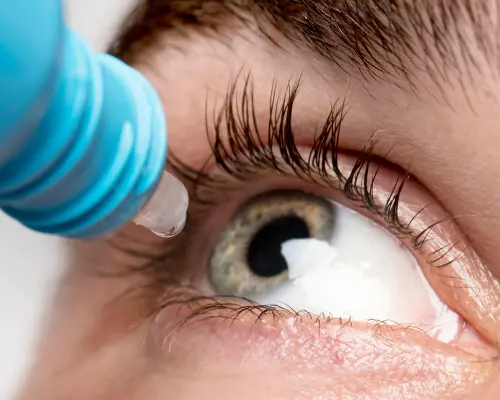
Dry Eye Treatment
To control symptoms and enhance tear production, dry eye treatment options include prescription drugs like cyclosporine, artificial tears, and lifestyle modifications.
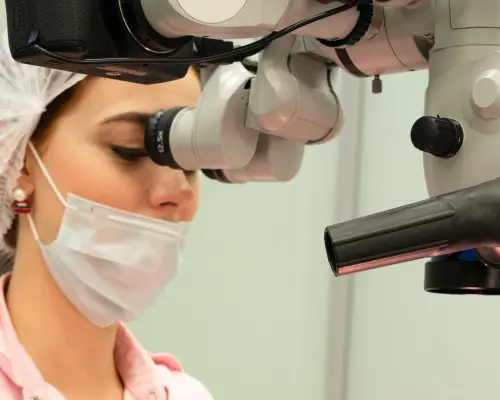
Contoura Vision
Contoura visual is a highly precise LASIK eye surgery treatment that corrects visual abnormalities using topography-guided technology.
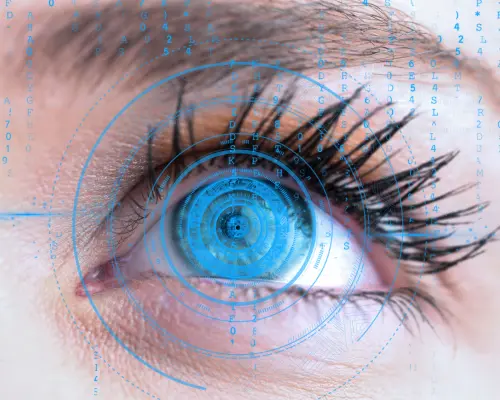
ICL
The term "ICL" refers to Implantable Collamer Lenses, a kind of corrective lens that is placed inside the eye to cure astigmatism, hyperopia, and myopia.
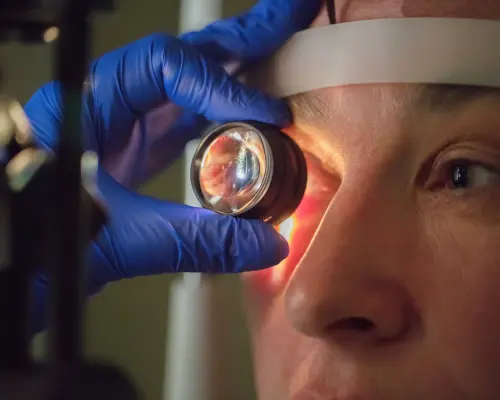
Cataract Surgery
The process of having a cataract surgically removed and a clean artificial lens placed in its place restores eyesight.

